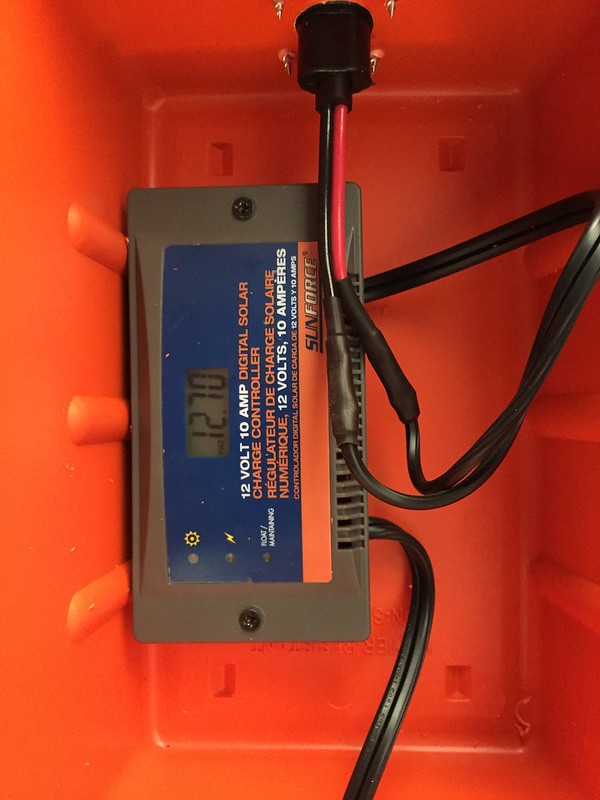nickburt
Observer
I already have a split charge system the uses a voltage sensing solenoid to auto connect when the starting battery voltage passes above a threshold, the controller for the solenoid also gives me the ability to manually connect the starting and houshold batteries if needed. (I have a Tmax split charge system).
I'm going to add solar charging soon, and have a couple of questions:
Is it better to hook the solar charge up to the starting battery, or houshold batteries (I have two 110Ah aux batteries)? Given that my solenoid auto links above a certain voltage, or can be linked manually.
If the solar is connected to the starting battery, then this would ensure they are all kept topped up automatically, or would would it be better to connect solar to the houshold batteries and link if needed to the starting battery.
I'm thinking it doesn't really matter and probably comes down to personal preference.
Also, presumably, the solar kit can be left connected (controller and panel(s)), when the engine is running and the alternator is doing the work without risking damage to the solar panels or their controller. I'm assuming here the controllers are protective.
I'm going to add solar charging soon, and have a couple of questions:
Is it better to hook the solar charge up to the starting battery, or houshold batteries (I have two 110Ah aux batteries)? Given that my solenoid auto links above a certain voltage, or can be linked manually.
If the solar is connected to the starting battery, then this would ensure they are all kept topped up automatically, or would would it be better to connect solar to the houshold batteries and link if needed to the starting battery.
I'm thinking it doesn't really matter and probably comes down to personal preference.
Also, presumably, the solar kit can be left connected (controller and panel(s)), when the engine is running and the alternator is doing the work without risking damage to the solar panels or their controller. I'm assuming here the controllers are protective.




